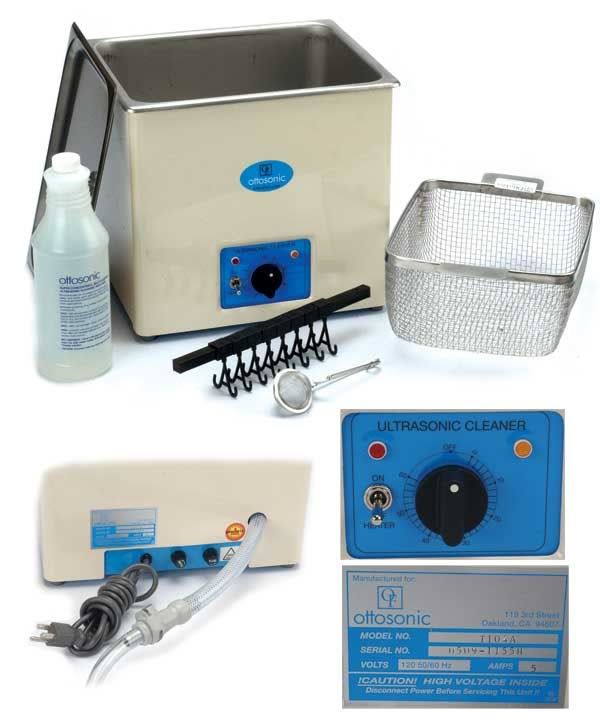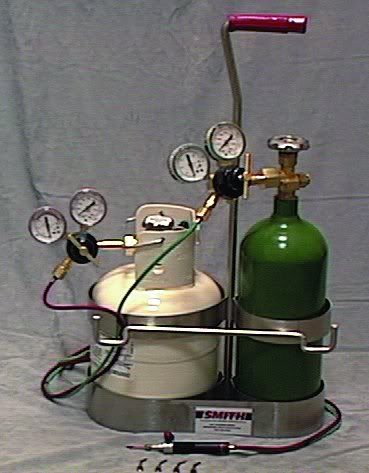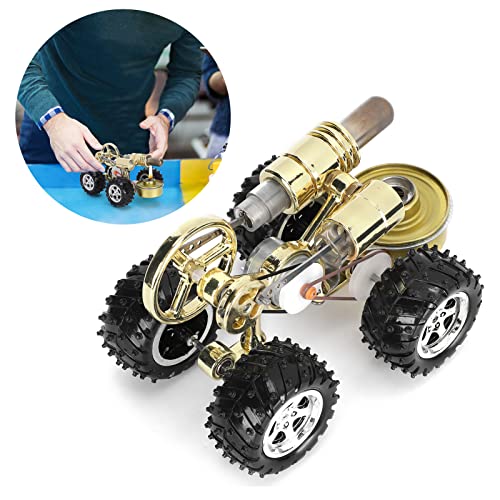Runner
Well-Known Member
- Joined
- Feb 10, 2011
- Messages
- 124
- Reaction score
- 17
Hi all,
I am in the final stages of completing the boiler for my 3.5" gauge locomotive, the outstanding tasks are silver soldering the crown stays to the top of the boiler, the backhead and foundation ring. The boiler construction has been stalled for some months due to not having sufficient heat source to silver solder the remaining items, I have a 7kw propane torch which is struggling even with the lowest melting point silver solder (620 deg C). In anticipation of overcoming that heat source limitation, I have tried to clean the boiler by pickling it in sulphuric acid, it's 25% solution at the moment, I understand that 10% is the ideal. However, I have difficulty in particularly cleaning between the crown stays and the top of the boiler were manual rubbing is impossible. After a dip in the pickling solution and washing there is still a brown stain which appears after washing and areas of blackened copper inside the boiler. The outside is reasonably clean because I have been able to rub with a cloth when drying and or mild abrasive action. I am constantly admiring pictures of boiler construction posted on the Internet that show a healthy pink glow just by pickling. I am not leaving it in the pickling solution for too long an hour or so.
Please advise if there is some additional requirements to removing the stains both brown and black and if pickling is all that's required how long should I leave it in the pickling solution?
Thanks in anticipation
Regards,
Runner
I am in the final stages of completing the boiler for my 3.5" gauge locomotive, the outstanding tasks are silver soldering the crown stays to the top of the boiler, the backhead and foundation ring. The boiler construction has been stalled for some months due to not having sufficient heat source to silver solder the remaining items, I have a 7kw propane torch which is struggling even with the lowest melting point silver solder (620 deg C). In anticipation of overcoming that heat source limitation, I have tried to clean the boiler by pickling it in sulphuric acid, it's 25% solution at the moment, I understand that 10% is the ideal. However, I have difficulty in particularly cleaning between the crown stays and the top of the boiler were manual rubbing is impossible. After a dip in the pickling solution and washing there is still a brown stain which appears after washing and areas of blackened copper inside the boiler. The outside is reasonably clean because I have been able to rub with a cloth when drying and or mild abrasive action. I am constantly admiring pictures of boiler construction posted on the Internet that show a healthy pink glow just by pickling. I am not leaving it in the pickling solution for too long an hour or so.
Please advise if there is some additional requirements to removing the stains both brown and black and if pickling is all that's required how long should I leave it in the pickling solution?
Thanks in anticipation
Regards,
Runner







































![MeshMagic 3D Free 3D Modeling Software [Download]](https://m.media-amazon.com/images/I/B1U+p8ewjGS._SL500_.png)










![DreamPlan Home Design and Landscaping Software Free for Windows [PC Download]](https://m.media-amazon.com/images/I/51kvZH2dVLL._SL500_.jpg)












